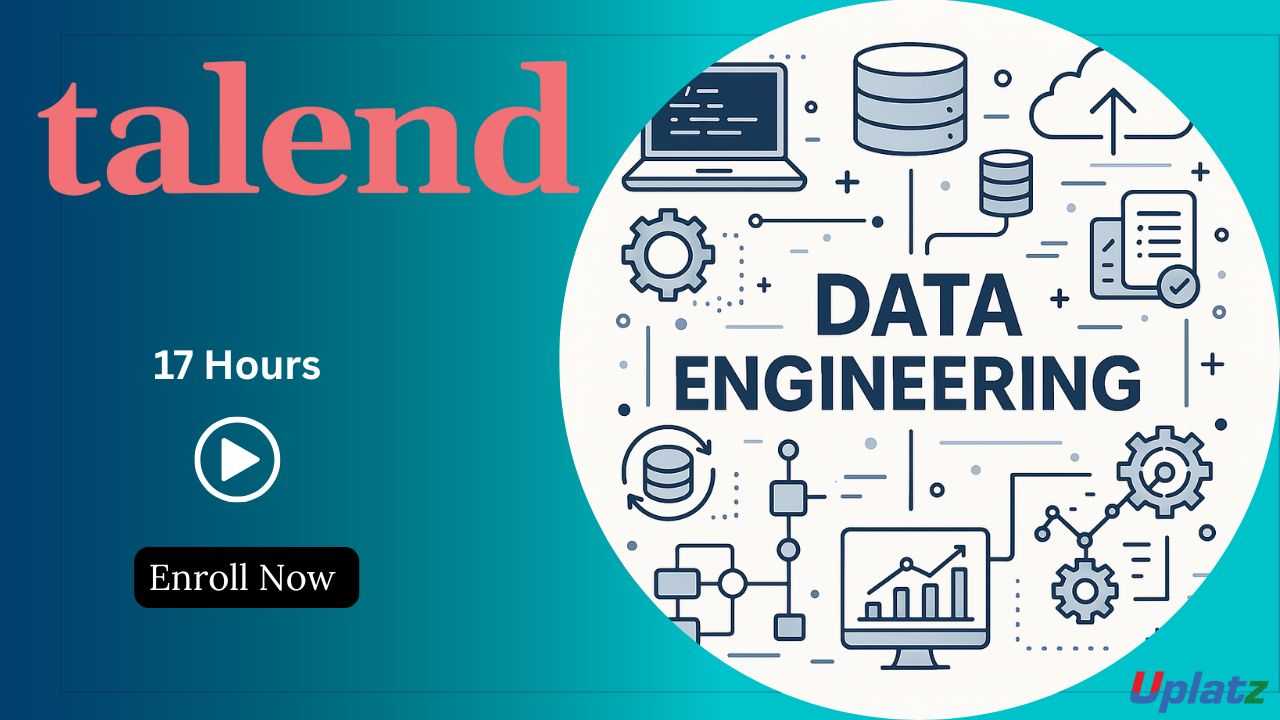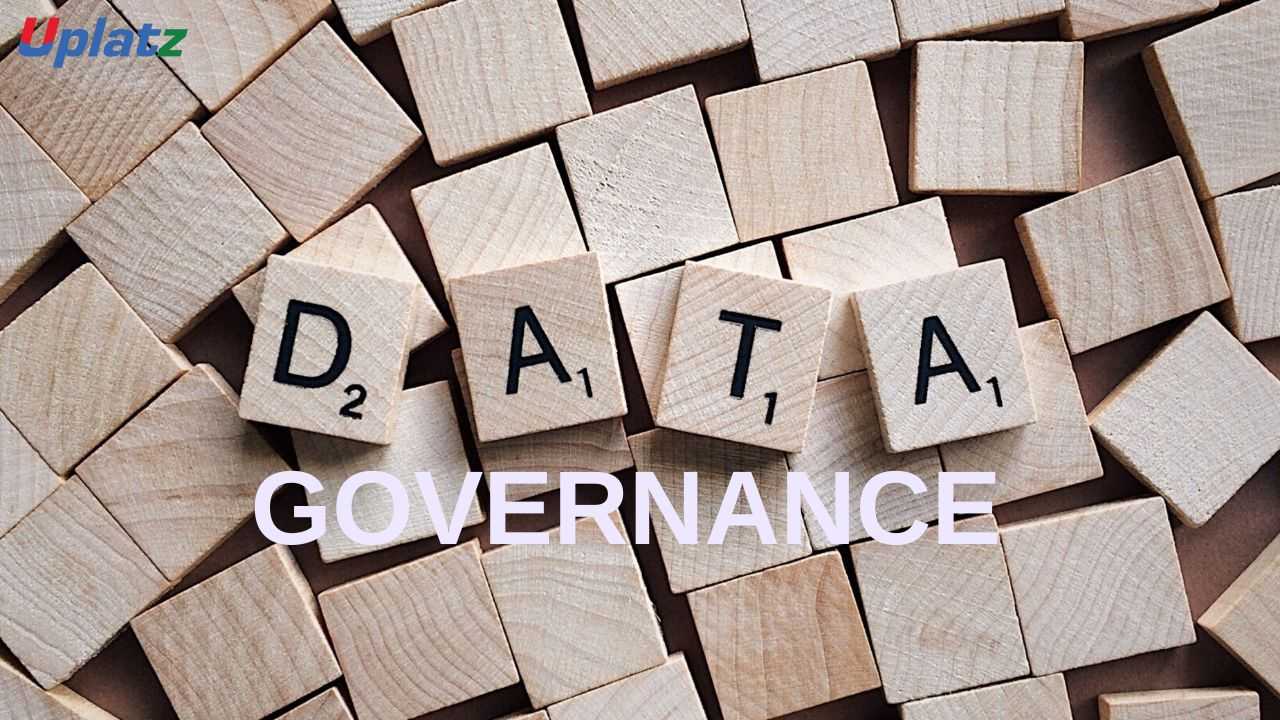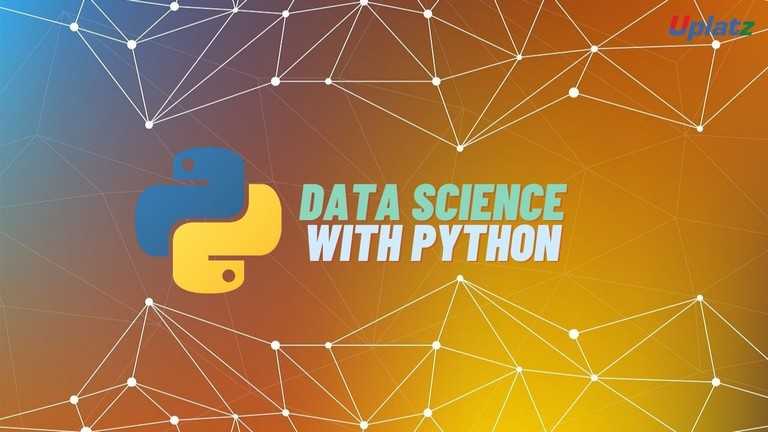Data Engineering
Master data engineering from pipelines to storage and build robust, scalable systems for big data processing.Preview Data Engineering course
Price Match Guarantee Full Lifetime Access Access on any Device Technical Support Secure Checkout Course Completion Certificate 94% Started a new career
BUY THIS COURSE (
94% Started a new career
BUY THIS COURSE (GBP 12 GBP 29 )-
 85% Got a pay increase and promotion
85% Got a pay increase and promotion
Students also bought -
-

- Data Engineering with Talend
- 17 Hours
- GBP 12
- 540 Learners
-

- Data Governance
- 4 Hours
- GBP 12
- 276 Learners
-

- Data Science with Python
- 45 Hours
- GBP 12
- 2931 Learners

-
Build end-to-end data pipelines using Python and SQL
-
Use tools like Apache Airflow for workflow orchestration
-
Process data in real-time with Kafka and batch with Spark
-
Design scalable storage systems with cloud-based services
-
Implement ETL and data validation best practices
-
Developers looking to specialize in data engineering
-
Data analysts transitioning into backend data roles
-
Computer science students exploring big data systems
-
Professionals working in cloud, devops, or analytics
-
Tech enthusiasts building data-driven applications
-
Follow modules in order to build foundational understanding
-
Practice hands-on using cloud and open-source tools
-
Experiment with real-world datasets from Kaggle or open APIs
-
Keep notes on architectures, tools, and error-handling
-
Participate in community Q&A and apply what you learn in mini-projects
-
Review architecture diagrams and deployment strategies regularly
Course/Topic 1 - Coming Soon
-
The videos for this course are being recorded freshly and should be available in a few days. Please contact info@uplatz.com to know the exact date of the release of this course.
By the end of this course, you will be able to:
-
Understand the role and responsibilities of a Data Engineer
-
Build batch and streaming data pipelines
-
Implement data modeling and data warehousing techniques
-
Use Airflow for orchestration and scheduling
-
Handle data quality, security, and governance
-
Deploy pipelines using Docker and cloud services like AWS/GCP
Course Syllabus
Module 1: Introduction to Data Engineering
-
What is Data Engineering
-
Roles vs. Data Scientists vs. Analysts
-
Tools & Ecosystem Overview
Module 2: Databases & SQL for Engineers
-
Relational and NoSQL databases
-
Writing advanced SQL queries
-
Indexing, optimization, and joins
Module 3: Data Modeling & Warehousing
-
Dimensional modeling
-
Star & snowflake schemas
-
Data marts and OLAP
Module 4: Batch Data Pipelines
-
Python and Pandas
-
Writing ETL scripts
-
Scheduling with cron and Airflow
Module 5: Stream Processing with Kafka
-
Kafka architecture and setup
-
Streaming vs. batch
-
Data ingestion pipelines
Module 6: Big Data Processing with Spark
-
RDDs and DataFrames
-
PySpark and distributed computing
-
Spark SQL
Module 7: Data Lakes and Storage
-
S3, HDFS, Delta Lake
-
File formats: CSV, JSON, Parquet, Avro
-
Partitioning and data lifecycle
Module 8: Cloud Data Engineering
-
AWS Redshift, GCP BigQuery, Azure Synapse
-
Serverless data workflows
-
Infrastructure as Code (IaC)
Module 9: Data Quality & Validation
-
Data testing tools (Great Expectations)
-
Logging and alerting for failures
-
Schema enforcement
Module 10: Capstone Project
-
Build and deploy a full ETL pipeline
-
Present data architecture
-
Document workflows and configurations
Completing this course prepares you for high-demand roles such as:
-
Data Engineer
-
Big Data Developer
-
Cloud Data Engineer
-
ETL Developer
-
Data Platform Specialist
-
What is the difference between batch processing and stream processing?
-
How do you optimize a SQL query for performance?
-
What is the role of Apache Airflow in data engineering?
-
Explain partitioning in data lakes and why it’s useful.
-
What are the key differences between Redshift and BigQuery?
-
How does Kafka ensure message durability and ordering?
-
What are common file formats used in big data, and when to use each?
-
Describe the difference between a star schema and a snowflake schema.
-
How do you handle data quality issues in ETL pipelines?
-
What are the benefits of using Spark over traditional ETL tools?









